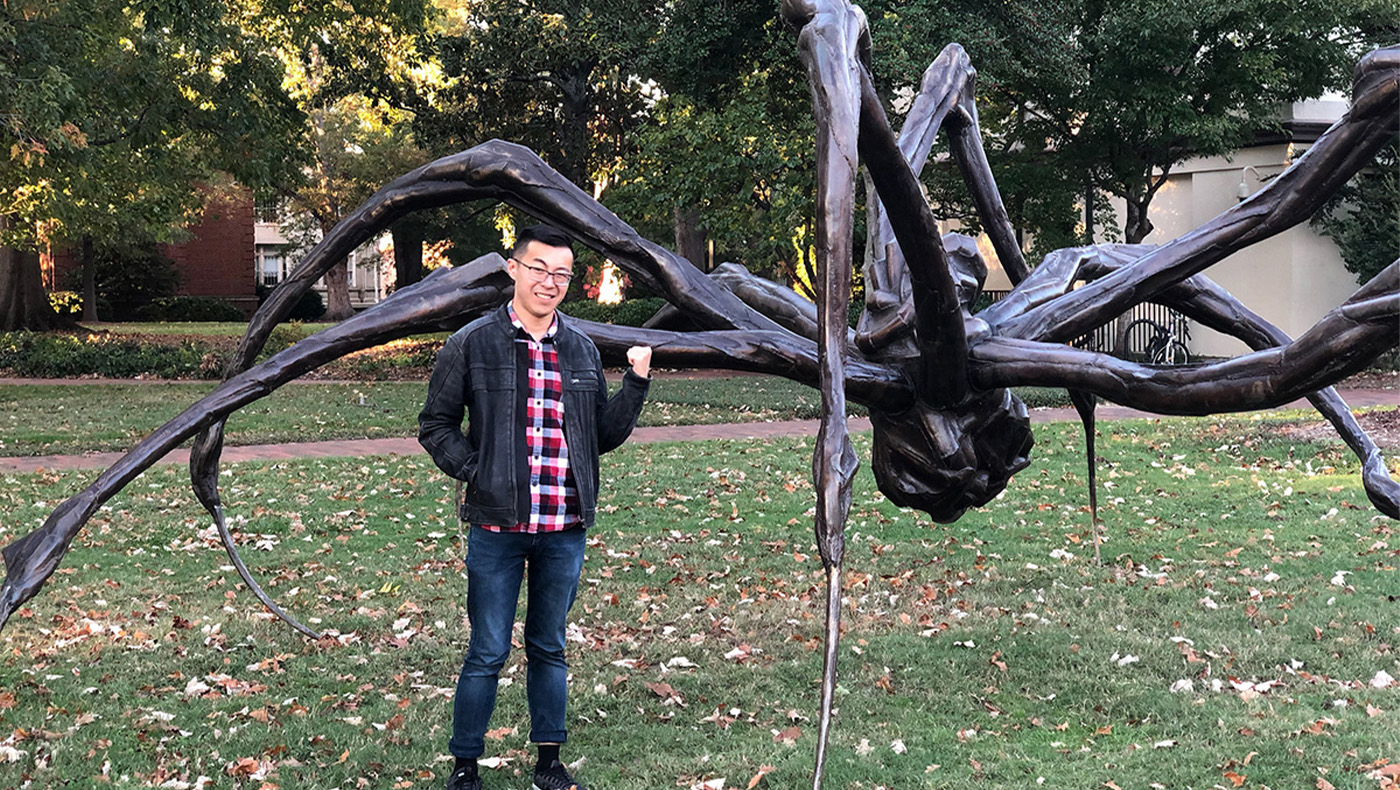Kent Lee, PhD is a postdoctoral research associate working with Dr. Ajay Satpute in the Department of Psychology. He is currently researching how fear works in the mind.
I’m interested in emotion, and specifically the psychology and neuroscience behind emotions. We often think of emotions as innate reactions that are universal. However, a lot of more recent research suggests that culture and language play an important role in the emotions people across the world feel and that emotions are made up of more basic ingredients.
My work involves unpacking how these ingredients combine to produce an experience of emotion. Currently, I am focused on the neuroscience side of things and use MRI to look at whether brain activity during the experience of an emotion, like fear, differs across situations.
People often think the amygdala (a part of the brain that plays a central role in emotional responses) is responsible for fear, but overviews of prior research suggest the story is more complicated. For example, the amygdala doesn’t always show up in all fMRI findings on fear. My research studies this variability in brain activity during fear across different situations in order to better understand why and when different brain areas are involved when people feel fear.
Until we can get a systematic explanation for why studies find differing patterns of brain activity for the same emotions, our understanding of how the brain produces emotions and, ultimately, our understanding of mental disorders that involve emotion, like generalized anxiety disorder or phobias, is limited. Although my focus as a postdoc is on neuroscience, my background is a mix of clinical psychology in undergraduate studies and social psychology in graduate school. As an undergrad, I started out in a lab studying how changes in self-harm is motivated by something we call affect—a general feeling of pleasantness or unpleasantness. The fact that affect can drive such a counter-intuitive behavior led me to study emotion in graduate school and learn that what we think of as emotion is made up of more basic ingredients, including affect. Ultimately, that led me to want to learn more about these basic ingredients and how they correspond to brain activity.
I really love working at Northeastern because there is such a collaborative research community. For a while now, I’ve been part of a group of psychologists, neuroscientists, and engineers all working together to understand how the brain produces emotion, and it’s been really fun! And it’s great that Northeastern is so close to everything in Boston as well.

